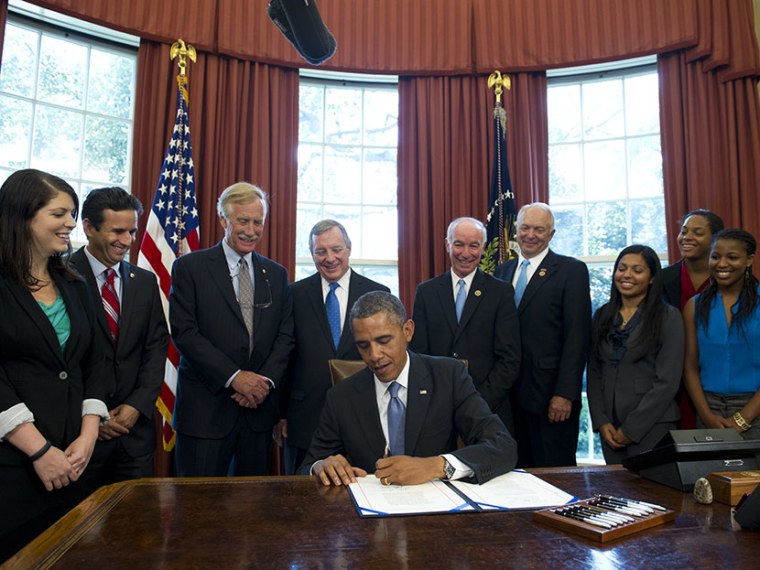President Obama—with 10 pens in hand--signed the student loan bill into law on Friday after weeks of partisan disagreements and rising costs.
He commented on the bill being "common-sense legislation" that will assist students in their efforts to attend college. But, he added, the job is not complete because the cost of college remains high for many Americans.
Congress missed the July 1 deadline to avoid a hike in student loan rates, but a bill finally passed in the Senate at the end of the month in an 81-18 vote. Politicians overcame several disagreements, including the liberal opponents who argued that the bill would fill government funds by burdening students with high-interest payments in the future.
Democrats insisted there had to be a cap on interest rates to protect future borrowers from an undue burden. But Republicans refused to have the government spend more to fend the rate hike.
Borrowing costs for lower-income students increased at the beginning of July, jumping from 3.4% to 6.8% on subsidized Stafford loans from the federal government. For the average borrower, that meant an additional $761 for every loan taken out through the program, msnbc reported. But the Senate couldn’t quickly agree on ways to fix the soaring costs.
The bill secures the interest rates on federal student loans to the long-term interest rate for federal borrowing, and reduces the deficit by about $715 million over 10 years. Undergraduates borrowing Stafford loans will see their rate lowered from 6.8% to 3.86% for the current year. The bill also permanently changes the way the federal government calculates student borrowing rates.
